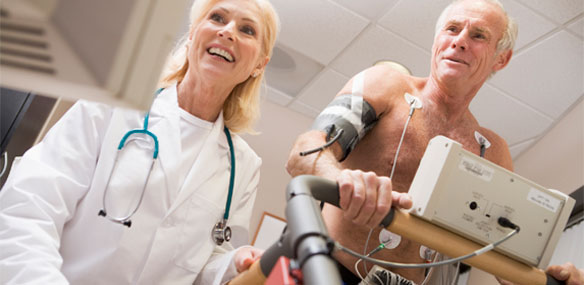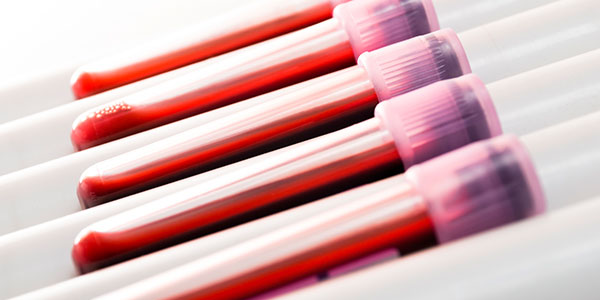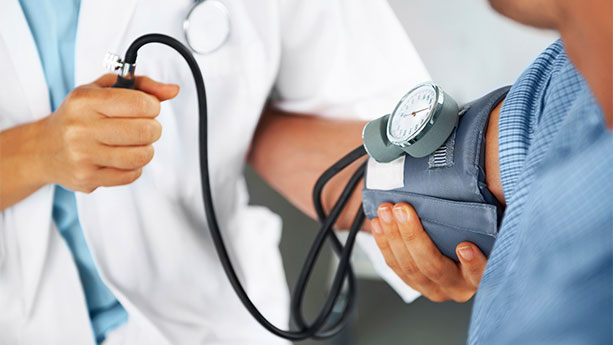Most heart problems can be treated through procedures or lifestyle changes, but effective treatment relies on an accurate and timely diagnosis. The Sutter network offers a wide range of medically recognized diagnostic methods and technologies to identify the type and location of your heart condition.

Featured Services
Diagnosing Your Heart Condition
Laboratory Tests

Basic blood work can reveal a wealth of information about your heart. Depending on your doctor’s recommendations, our labs can test for a variety of things that can be helpful in diagnosing a heart condition. These may include high cholesterol or lipoprotein-a, which are risk factors for heart disease; C-reactive protein, a marker of inflammation; and both A1C and blood sugar, two indicators of diabetes or prediabetes.
Stress Tests
These non-invasive tests help measure the amount of blood pumping through your heart during rest and exercise. We offer a variety of stress tests, including: exercise or treadmill stress test, nuclear stress test and stress echocardiogram.
Angiography
An angiogram is a relatively quick outpatient procedure used to diagnose heart disease, arrhythmias or other problems. The doctor uses a catheter, or thin tube, with an electrode at the tip, which he or she inserts through an artery or vein in the groin, arm or neck. Depending on the reason for the procedure, different types of angiography may be used: coronary, aortic, or left heart ventricular.
Imaging
Doctors use cardiovascular imaging techniques, either alone or with other procedures, when they want to see into the heart, veins or arteries and produce images noninvasively. Sutter care centers have a wide selection of imaging services. Some imaging tests for the heart use a small amount of radioactive tracer, such as nuclear ventriculography and Single Photon Emission Computed Tomography (SPECT). Others use a magnetic field or radio waves, such as a heart MRI. Angiograms and heart CT scans use X-rays, while echocardiogram and intravascular ultrasound use sound waves.
Heart Rhythm Monitoring
To diagnose irregular heart rhythms, Sutter network doctors choose from a variety of methods that can noninvasively collect and record data for periods of time, ranging from a few hours to two years. These include electrocardiogram (EKG), holter monitor, or loop recorder.
Heartflow CT Scan
The Sutter Health network now offers the latest in cardiac imaging with HeartFlow CT scan analysis. Using your CT scan, this technology creates a 3D model of your heart, showing where blockages are affecting blood flow. This non-invasive procedure can help your doctor diagnose coronary artery disease and determine next steps in your care.
Heart Disease Care
Non-Invasive Care and Management
Many heart conditions can be addressed through non-invasive lifestyle practices and medications. These strategies can substantially lower your risk of heart attack, heart disease and stroke. Sutter network cardiologists work with you to develop a tailored treatment plan and provide any follow-up education and support.
Health and Wellness
Know Your Numbers
Knowing four numbers critical to good health can help you lower your risk for heart attack and stroke: your blood pressure, cholesterol levels, blood sugar level and body mass index (BMI). Learn how to get tested, what numbers are optimal and how to adjust unhealthy levels.
Structural Heart Research
Structural Heart research investigates valvular heart disease and novel innovations in valve replacement technologies.
Doctors at Sutter Delta Medical Center













